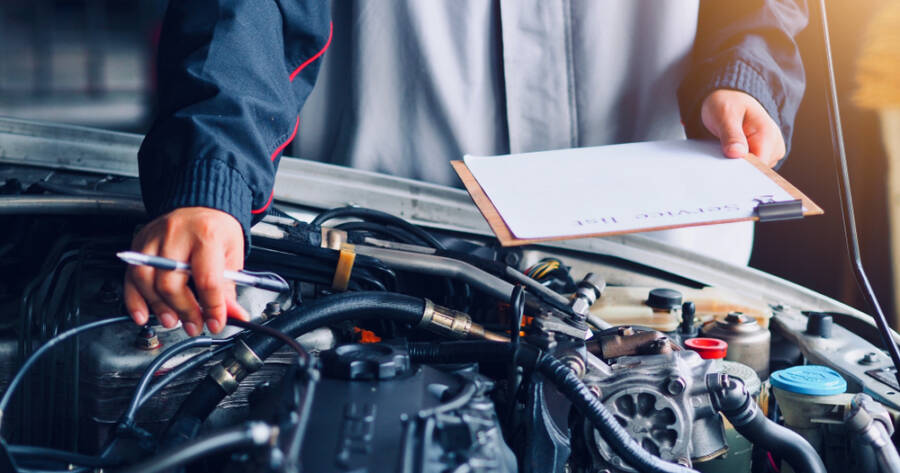Keeping your vehicle in prime condition can be rewarding, offering peace of mind and potentially extending the life of your car. Whether you’re a seasoned car enthusiast or a complete novice, maintaining your ride doesn’t need to be a daunting task. By integrating a few regular checks and simple maintenance steps, you might enhance performance and improve safety. Explore some essential tips that could help keep your vehicle running smoothly.
Regular Inspection and Maintenance
Starting with a basic routine inspection is an effective strategy for vehicle upkeep. Regularly checking fluid levels, such as oil, coolant, and brake fluid, is crucial. These fluids play a significant role in your car’s operation and should typically be at optimal levels.
While professional checks are valuable, a personal monthly inspection might help catch issues early. It could be beneficial to maintain a schedule that involves professional servicing at least twice a year.
Engine Care
The engine is the heart of your vehicle, and its well-being is vital. Routinely checking for signs of wear or damage might prevent future problems. Regular oil changes can ensure that your engine functions efficiently.
It’s generally suggested to use high-quality oil and filters for better performance. If your vehicle seems sluggish or the check engine light appears, it might be time for a professional assessment.
Tire Management and Safety
Proper tire care is another essential element of vehicle maintenance. Maintaining the correct tire pressure is crucial as it can affect fuel efficiency and safety. Tires should be inspected for wear and tear regularly.
Uneven tread wear might signal alignment issues, which, if left unchecked, can lead to significant problems. Rotating your tires every 5,000 to 7,000 miles can potentially extend their lifespan and improve ride quality.
Brake System Alerts
Your vehicle’s brake system is fundamental to safety. Regular brake inspections could help prevent accidents. Listening for unusual sounds, such as squealing or grinding, is essential as these might indicate wear.
If the brakes are less responsive, it could be necessary to have them checked. It’s generally a good practice to have your brakes inspected by a professional annually, or sooner if there are concerns.
Electrical System Vigilance
The electrical system in your car powers numerous components, making it essential to maintain. The battery, in particular, requires attention. Cleaning battery terminals and ensuring secure connections can prevent unexpected failures.
If the battery struggles to hold charge or if the headlights seem dim, it might be wise to test its efficiency. Regular checks by a professional could ensure your car’s electrical system is in optimal condition.
Lighting and Signals
Properly functioning lights and signals are crucial for safety, especially when driving in low-visibility conditions. Routinely check whether all lights, including headlights, brake lights, and turn signals, are functioning correctly.
Replacing bulbs as needed can also prevent potential safety hazards and ensure compliance with legal requirements. This simple practice might enhance visibility and reduce the risk of accidents.
Interior and Exterior Care
Maintaining both the interior and exterior of your vehicle is about more than aesthetics; it can also impact your car’s longevity. Regular washing can protect the paint and reduce rust, especially in salt-prone areas.
Using wax might offer an additional protective layer. Inside, vacuuming the interior and cleaning surfaces can prevent wear and aging. Regular checks of seat belts and other safety equipment are also advised.
Upholstery and Air Quality
The condition of your vehicle’s upholstery and air quality contributes to a comfortable driving experience. Consider regular cleaning to prevent fabric deterioration and to maintain a fresh interior environment.
Changing cabin air filters can enhance air quality and is especially important for those with allergies. It is often recommended to inspect air-conditioning systems annually to maintain efficiency and comfort.
Seasonal Tips for Optimal Performance
Vehicles face varied challenges depending on the season; adapting your maintenance routine to these changes is beneficial. In colder months, checking antifreeze levels and ensuring your heater is functional is key.
For summer, inspecting the air conditioning system is advisable. Tire pressure can fluctuate with temperature changes, so regular monitoring is wise.
Preparing for Extreme Conditions
Preparation for extreme weather can minimize strain on your vehicle. In winter, equipping your car with winter tires could improve traction and safety.
Conversely, checking your coolant system in summer is crucial to prevent overheating. Having an emergency kit, including tools, blankets, and food, in the vehicle can be invaluable during unexpected situations.
Learn More Today!
Vehicle maintenance doesn’t need to be overwhelming; mindful practices and regular checks might ensure your ride remains in excellent condition. While professional assessments provide critical insights, combining these with personal vigilance might offer a comprehensive approach to upkeep. Investing time into maintaining your vehicle can foster safer driving experiences and potentially reduce unexpected costs, making it a worthwhile endeavor for any car owner.

